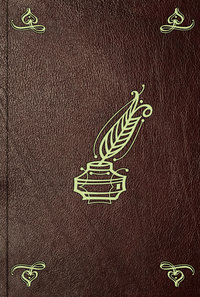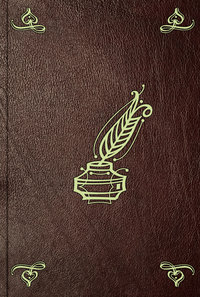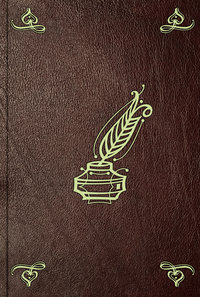 полная версия
полная версияThe Works of John Dryden, now first collected in eighteen volumes. Volume 18
Our author is particularly mentioned with great honour by Cicero, Strabo, Josephus, and Plutarch; and in what rank of writers they are placed, none of the learned need to be informed. He is copied in whole books together, by Livy, commonly esteemed the prince of the Roman history, and translated word for word, though the Latin historian is not to be excused, for not mentioning the man to whom he had been so much obliged, nor for taking, as his own, the worthy labours of another. Marcus Brutus, who preferred the freedom of his country to the obligations which he had to Julius Cæsar, so prized Polybius, that he made a compendium of his works; and read him not only for his instruction, but for the diversion of his grief, when his noble enterprize for the restoration of the commonwealth had not found the success which it deserved. And this is not the least commendation of our author, that he, who was not wholly satisfied with the eloquence of Tully, should epitomise Polybius with his own hand.17 It was on the consideration of Brutus, and the veneration which he paid him, that Constantine the Great took so great a pleasure in reading our author, and collecting the several treaties of his embassies; of which, though many are now lost, yet those which remain are a sufficient testimony of his abilities; and I congratulate my country, that a prince of our extraction (as was Constantine,) has the honour of obliging the Christian world by these remainders of our great historian.
It is now time to enter into the particular praises of Polybius, which I have given you before in gross; and the first of them (following the method of Casaubon,) is his wonderful skill in political affairs. I had read him, in English, with the pleasure of a boy, before I was ten years of age; and yet, even then, had some dark notions of the prudence with which he conducted his design, particularly in making me know, and almost see, the places where such and such actions were performed. This was the first distinction which I was then capable of making betwixt him and other historians which I read early. But when being of a riper age, I took him again into my hands, I must needs say, that I have profited more by reading him than by Thucydides, Appian, Dion Cassius, and all the rest of the Greek historians together; and amongst all the Romans, none have reached him, in this particular, but Tacitus, who is equal with him.
It is wonderful to consider with how much care and application he instructs, counsels, warns, admonishes, and advises, whensoever he can find a fit occasion. He performs all these sometimes in the nature of a common parent of mankind; and sometimes also limits his instructions to particular nations, by a friendly reproach of those failings and errors to which they were most obnoxious. In this last manner he gives instructions to the Mantinæans, the Elæans, and several other provinces of Greece, by informing them of such things as were conducing to their welfare. Thus he likewise warns the Romans of their obstinacy and wilfulness, vices which have often brought them to the brink of ruin. And thus he frequently exhorts the Greeks, in general, not to depart from their dependence on the Romans; nor to take false measures, by embroiling themselves in wars with that victorious people, in whose fate it was to be masters of the universe. But as his peculiar concernment was for the safety of his own countrymen, the Achaians, he more than once insinuates to them the care of their preservation, which consisted in submitting to the yoke of the Roman people, which they could not possibly avoid; and to make it easy to them, by a cheerful compliance with their commands, rather than unprofitably to oppose them with the hazard of those remaining privileges which the clemency of the conquerors had left them. For this reason, in the whole course of his history he makes it his chiefest business to persuade the Grecians in general, that the growing greatness and fortune of the Roman empire was not owing to mere chance, but to the conduct and invincible courage of that people, to whom their own virtue gave the dominion of the world. And yet this counsellor of patience and submission, as long as there was any probability of hope remaining to withstand the progress of the Roman fortune, was not wanting to the utmost of his power to resist them, at least to defer the bondage of his country, which he had long foreseen. But the fates inevitably drawing all things into subjection to Rome, this well-deserving citizen was commanded to appear in that city,18 where he suffered the imprisonment of many years; yet even then his virtue was beneficial to him, the knowledge of his learning and his wisdom procuring him the friendship of the most potent in the senate; so that it may be said with Casaubon, that the same virtue which had brought him into distress, was the very means of his relief, and of his exaltation to greater dignities than those which he lost; for by the intercession of Cato the Censor, Scipio Æmilianus, who afterwards destroyed Carthage, and some other principal noblemen, our Polybius was restored to liberty. After which, having set it down as a maxim, that the welfare of the Achaians consisted, as I have said, in breaking their own stubborn inclinations, and yielding up that freedom which they no longer could maintain, he made it the utmost aim of his endeavours to bring over his countrymen to that persuasion; in which, though, to their misfortunes, his counsels were not prevalent, yet thereby he not only proved himself a good patriot, but also made his fortunes with the Romans. For his countrymen, by their own unpardonable fault, not long afterwards drew on themselves their own destruction; for when Mummius, in the Achaian war, made a final conquest of that country, he dissolved the great council of their commonwealth.19 But, in the mean time, Polybius enjoyed that tranquillity of fortune which he had purchased by his wisdom, in that private state, being particularly dear to Scipio and Lælius, and some of the rest, who were then in the administration of the Roman government. And that favour which he had gained amongst them, he employed not in heaping riches to himself, but as a means of performing many considerable actions; as particularly when Scipio was sent to demolish Carthage,20 he went along with him in the nature of a counsellor and companion of his enterprize. At which time, receiving the command of a fleet from him, he made discoveries in many parts of the Atlantic Ocean, and especially on the shores of Africa; and21 doing many good offices to all sorts of people whom he had power to oblige, especially to the Grecians, who, in honour of their benefactor, caused many statues of him to be erected, as Pausanias has written. The particular gratitude of the Locrians in Italy is also an undeniable witness of this truth; who, by his mediation, being discharged from the burden of taxes which oppressed them, through the hardship of those conditions which the Romans had imposed on them in the treaty of peace, professed themselves to be owing for their lives and fortunes, to the interest only and good nature of Polybius, which they took care to express by all manner of acknowledgment.
Yet as beneficent as he was, the greatest obligement which he could lay on human kind, was the writing of this present history; wherein he has left a perpetual monument of his public love to all the world in every succeeding age of it, by giving us such precepts as are most conducing to our common safety and our benefit. This philanthropy (which we have not a proper word in English to express,) is every-where manifest in our author; and from hence proceeded that divine rule which he gave to Scipio, – that whensoever he went abroad, he should take care not to return to his own house, before he had acquired a friend by some new obligement. To this excellency of nature we owe the treasure which is contained in this most useful work: this is the standard by which all good and prudent princes ought to regulate their actions. None have more need of friends than monarchs; and though ingratitude is too frequent in the most of those who are obliged, yet encouragement will work on generous minds; and if the experiment be lost on thousands, yet it never fails on all: and one virtuous man in a whole nation is worth the buying, as one diamond is worth the search in a heap of rubbish. But a narrow-hearted prince, who thinks that mankind is made for him alone, puts his subjects in a way of deserting him on the first occasion;22 and teaches them to be as sparing of their duty, as he is of his bounty. He is sure of making enemies, who will not be at the cost of rewarding his friends and servants; and by letting his people see he loves them not, instructs them to live upon the square with him, and to make him sensible in his turn, that prerogatives are given, but privileges are inherent. As for tricking, cunning, and that which in sovereigns they call king-craft, and reason of state in commonwealths, to them and their proceedings Polybius is an open enemy. He severely reproves all faithless practices, and that κακοπραγμὁσυνη, or vicious policy, which is too frequent in the management of the public. He commends nothing but plainness, sincerity, and the common good, undisguised, and set in a true light before the people. Not but that there may be a necessity of saving a nation, by going beyond the letter of the law, or even sometimes by superseding it; but then that necessity must not be artificial, – it must be visible, it must be strong enough to make the remedy not only pardoned, but desired, to the major part of the people; not for the interest only of some few men, but for the public safety: for otherwise, one infringement of a law draws after it the practice of subverting all the liberties of a nation, which are only entrusted with any government, but can never be given up to it. The best way to distinguish betwixt a pretended necessity and a true, is to observe if the remedy be rarely applied, or frequently; in times of peace, or times of war and public distractions, which are the most usual causes of sudden necessities. From hence Casaubon infers, that this our author, who preaches virtue, and probity, and plain-dealing, ought to be studied principally by kings and ministers of state; and that youth, which are bred up to succeed in the management of business, should read him carefully, and imbibe him thoroughly, detesting the maxims that are given by Machiavel and others, which are only the instruments of tyranny. Furthermore, (continues he,) the study of truth is perpetually joined with the love of virtue; for there is no virtue which derives not its original from truth; as, on the contrary, there is no vice which has not its beginning from a lie. Truth is the foundation of all knowledge, and the cement of all societies; and this is one of the most shining qualities in our author.
I was so strongly persuaded of this myself, in the perusal of the present history, that I confess, amongst all the ancients I never found any who had the air of it so much; and amongst the moderns, none but Philip de Commines.23 They had this common to them, that they both changed their masters. But Polybius changed not his side, as Philip did: he was not bought off to another party, but pursued the true interest of his country, even when he served the Romans. Yet since truth, as one of the philosophers has told me, lies in the bottom of a well, so it is hard to draw it up: much pains, much diligence, much judgment is necessary to hand it us; even cost is oftentimes required; and Polybius was wanting in none of these.
We find but few historians of all ages, who have been diligent enough in their search for truth: it is their common method to take on trust what they distribute to the public; by which means a falsehood once received from a famed writer becomes traditional to posterity. But Polybius weighed the authors from whom he was forced to borrow the history of the times immediately preceding his, and oftentimes corrected them, either by comparing them each with other, or by the lights which he had received from ancient men of known integrity amongst the Romans, who had been conversant in those affairs which were then managed, and were yet living to instruct him. He also learned the Roman tongue; and attained to that knowledge of their laws, their rights, their customs, and antiquities, that few of their own citizens understood them better: having gained permission from the senate to search the Capitol, he made himself familiar with their records, and afterwards translated them into his mother-tongue. So that he taught the noblemen of Rome their own municipal laws, and was accounted more skilful in them than Fabius Pictor, a man of the senatorian order, who wrote the transactions of the Punic wars. He who neglected none of the laws of history, was so careful of truth, (which is the principal,) that he made it his whole business to deliver nothing to posterity which might deceive them; and by that diligence and exactness, may easily be known to be studious of truth, and a lover of it. What therefore Brutus thought worthy to transcribe with his own hand out of him, I need not be ashamed to copy after him: “I believe,” says Polybius, “that nature herself has constituted truth as the supreme deity, which is to be adored by mankind, and that she has given it greater force than any of the rest; for being opposed, as she is on all sides, and appearances of truth so often passing for the thing itself, in behalf of plausible falsehoods, yet by her wonderful operation she insinuates herself into the minds of men; sometimes exerting her strength immediately, and sometimes lying hid in darkness for length of time; but at last she struggles through it, and appears triumphant over falsehood.” This sincerity Polybius preferred to all his friends, and even to his father: “in all other offices of life,” says he, “praise a lover of his friends, and of his native country; but in writing history, I am obliged to divest myself of all other obligations, and sacrifice them all to truth.”
Aratus, the Sicyonian, in the childhood of our author, was the chief of the Achaian commonwealth; a man in principal esteem, both in his own country and all the provinces of Greece; admired universally for his probity, his wisdom, his just administration, and his conduct: in remembrance of all which, his grateful countrymen, after his decease, ordained him those honours which are only due to heroes. Him our Polybius had in veneration, and formed himself by imitation of his virtues; and is never wanting in his commendations through the course of his history. Yet even this man, when the cause of truth required it, is many times reproved by him for his slowness in counsel, his tardiness in the beginning of his enterprises, his tedious and more than Spanish deliberations; and his heavy and cowardly proceedings are as freely blamed by our Polybius, as they were afterwards by Plutarch, who questionless drew his character from this history. In plain terms, that wise general scarce ever performed any great action but by night: the glittering of a sword before his face was offensive to his eyes: our author therefore boldly accuses him of his faint-heartedness; attributes the defeat at Caphiæ wholly to him; and is not sparing to affirm, that all Peloponnesus was filled with trophies, which were set up as the monuments of his losses. He sometimes praises, and at other times condemns the proceedings of Philip, king of Macedon, the son of Demetrius, according to the occasions which he gave him by the variety and inequality of his conduct; and this most exquisite on either side. He more than once arraigns him for the inconstancy of his judgment, and chapters even his own Aratus on the same head; shewing, by many examples, produced from their actions, how many miseries they had both occasioned to the Grecians; and attributing it to the weakness of human nature, which can make nothing perfect. But some men are brave in battle, who are weak in counsel, which daily experience sets before our eyes; others deliberate wisely, but are weak in the performing part; and even no man is the same to-day, which he was yesterday, or may be to-morrow. On this account, says our author, “a good man is sometimes liable to blame, and a bad man, though not often, may possibly deserve to be commended.” And for this very reason he severely taxes Timæus, a malicious historian, who will allow no kind of virtue to Agathocles, the tyrant of Sicily, but detracts from all his actions, even the most glorious, because in general he was a vicious man. “Is it to be thought,” says Casaubon, “that Polybius loved the memory of Agathocles, the tyrant, or hated that of the virtuous Aratus?” But it is one thing to commend a tyrant, and another thing to overpass in silence those laudable actions which are performed by him; because it argues an author of the same falsehood, to pretermit what has actually been done, as to feign those actions which have never been.
It will not be unprofitable, in this place, to give another famous instance of the candour and integrity of our historian. There had been an ancient league betwixt the republic of Achaia and the kings of Egypt, which was entertained by both parties sometimes on the same conditions, and sometimes also the confederacy was renewed on other terms. It happened, in the 148th Olympiad,24 that Ptolomy Epiphanes, on this occasion, sent one Demetrius, his ambassador, to the commonwealth of Achaia. That republic was then ruinously divided into two factions; whereof the heads on one side were Philopœmen, and Lycortas, the father of our author; of the adverse party, the chief was Aristænus, with some other principal Achaians. The faction of Philopœmen was prevalent in the council, for renewing the confederacy with the king of Egypt; in order to which, Lycortas received a commission to go to that court and treat the articles of alliance. Accordingly, he goes, and afterwards returns, and gives account to his superiors, that the treaty was concluded. Aristænus, hearing nothing but a bare relation of a league that was made, without any thing belonging to the conditions of it, and well knowing that several forms of those alliances had been used in the former negociations, asked Lycortas, in the council, according to which of them this present confederacy was made? To this question of his enemy, Lycortas had not a word to answer; for it had so happened by the wonderful neglect of Philopœmen and his own, and also that of Ptolomy’s counsellors, (or, as I rather believe, by their craft contrived,) that the whole transaction had been loosely and confusedly managed, which, in a matter of so great importance, redounded to the scandal and ignominy of Philopœmen and Lycortas, in the face of that grave assembly. Now these proceedings our author so relates, as if he had been speaking of persons to whom he had no manner of relation, though one of them was his own father, and the other always esteemed by him in the place of a better father. But being mindful of the law which himself had instituted, concerning the indispensable duty of an historian, (which is truth,) he chose rather to be thought a lover of it, than of either of his parents. It is true, Lycortas, in all probability, was dead when Polybius wrote this history; but, had he been then living, we may safely think, that his son would have assumed the same liberty, and not feared to have offended him in behalf of truth.
Another part of this veracity is also deserving the notice of the reader, though, at the same time we must conclude, that it was also an effect of a sound judgment, that he perpetually explodes the legends of prodigies and miracles, and instead of them, most accurately searches into the natural causes of those actions which he describes; for, from the first of these, the latter follows of direct consequence. And for this reason, he professes an immortal enmity to those tricks and jugglings, which the common people believe as real miracles; because they are ignorant of the causes which produced them. But he had made a diligent search into them, and found out, that they proceeded either from the fond credulity of the people, or were imposed on them by the craft of those whose interest it was that they should be believed. You hear not in Polybius, that it rained blood or stones; that a bull had spoken; or a thousand such impossibilities, with which Livy perpetually crowds the calends of almost every consulship.25 His new years could no more begin without them, during his description of the Punic wars, than our prognosticating almanacks without the effects of the present oppositions betwixt Saturn and Jupiter, the foretelling of comets and coruscations in the air, which seldom happen at the times assigned by our astrologers, and almost always fail in their events. If you will give credit to some other authors, some god was always present with Hannibal or Scipio to direct their actions; that a visible deity wrought journey-work under Hannibal, to conduct him through the difficult passages of the Alps; and another did the same office of drudgery for Scipio, when he besieged New Carthage, by draining the water, which otherwise would have drowned his army in their rash approaches; which Polybius observing, says wittily and truly, that the authors of such fabulous kind of stuff write tragedies, not histories; for, as the poets, when they are at a loss for the solution of a plot, bungle up their catastrophe with a god descending in a machine, so these inconsiderate historians, when they have brought their heroes into a plunge by some rash and headlong undertaking, having no human way remaining to disengage them with their honour, are forced to have recourse to miracle, and introduce a god for their deliverance. It is a common frenzy of the ignorant multitude, says Casaubon, to be always engaging heaven on their side; and indeed it is a successful stratagem of any general to gain authority among his soldiers, if he can persuade them, that he is the man by fate appointed for such or such an action, though most impracticable. To be favoured of God, and command (if it may be permitted so to say,) the extraordinary concourse of Providence, sets off a hero, and makes more specious the cause for which he fights, without any consideration of morality, which ought to be the beginning and end of all our actions; for, where that is violated, God is only present in permission; and suffers a wrong to be done, but not commands it. Light historians, and such as are superstitious in their natures, by the artifice of feigned miracles captivate the gross understandings of their readers, and please their fancies by relations of things which are rather wonderful than true; but such as are of a more profound and solid judgment, (which is the character of our Polybius), have recourse only to their own natural lights, and by them pursue the methods at least of probability, if they cannot arrive to a settled certainty. He was satisfied that Hannibal was not the first who had made a passage through the Alps, but that the Gauls had been before him in their descent on Italy; and also knew, that this most prudent general, when he laid his design of invading that country, had made an alliance with the Gauls, and prepossessed them in his favour; and before he stirred a foot from Spain, had provided against all those difficulties which he foresaw in his attempt, and compassed his undertaking, which indeed was void of miracles, but full of conduct, and military experience. In the same manner, Scipio, before he departed from Rome, to take his voyage into Spain, had carefully considered every particular circumstance which might cross his purpose, and made his enterprize as easy to him as human prudence could provide; so that he was victorious over that nation, not by virtue of any miracle, but by his admirable forecast, and wise conduct in the execution of his design. Of which, though Polybius was not an eye-witness, he yet had it from the best testimony, which was that of Lælius, the friend of Scipio, who accompanied him in that expedition; of whom our author, with great diligence; enquired concerning every thing of moment which happened in that war, and whom he commends for his sincerity in that relation.
Whensoever he gives us the account of any considerable action, he never fails to tell us why it succeeded, or for what reason it miscarried; together with all the antecedent causes of its undertaking, and the manner of its performance; all which he accurately explains: of which I will select but some few instances, because I want leisure to expatiate on many. In the fragments of the seventeenth book he makes a learned dissertation concerning the Macedonian phalanx, or gross body of foot, which was formerly believed to be invincible, till experience taught the contrary by the success of the battle which Philip lost to the commonwealth of Rome; and the manifest and most certain causes are therein related, which prove it to be inferior to the Roman legions. When also he had told us in his former books, of the three great battles wherein Hannibal had overthrown the Romans, and the last at Cannæ, wherein he had in a manner conquered that republic, he gives the reasons of every defeat, either from the choice of ground, or the strength of the foreign horse in Hannibal’s army, or the ill-timing of the fight on the vanquished side. After this, when he describes the turn of fortune on the part of the Romans, you are visibly conducted upwards to the causes of that change, and the reasonableness of the method which was afterwards pursued by that commonwealth, which raised it to the empire of the world. In these and many other examples, which for brevity are omitted, there is nothing more plain than that Polybius denies all power to fortune, and places the sum of success in Providence; συμβαινογγων τὑχην ἁιτιασθι φαυλον, indeed, are his words, It is a madness to make fortune the mistress of events, because in herself she is nothing, can rule nothing, but is ruled by prudence. So that whenever our author seems to attribute any thing to chance, he speaks only with the vulgar, and desires so to be understood.







